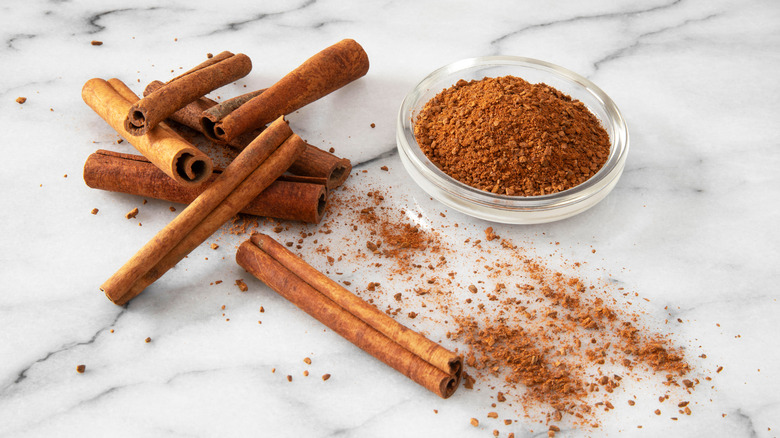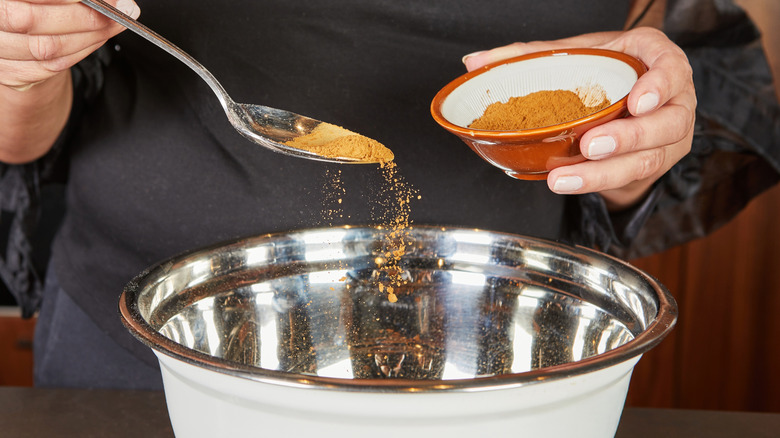A Year Later, The Cinnamon Lead Recall Still Isn't Over (The List Of Brands Keeps Growing)
Cinnamon is a beloved flavor of the fall season, but the FDA is ramping up warnings about the presence of lead in this spice and other products containing it. The agency initiated the recall, now updated to include 16 cinnamon brands, in July 2024, less than a year after multiple cinnamon-flavored fruit puree pouches were found to contain high levels of lead (which appeared on our list of Dollar Tree's biggest food recalls). As a result, the FDA encouraged greater lead testing of cinnamon at the state level, which led to the agency's most recent findings.
Recalled products have been distributed around the country to retailers like Dollar Tree, Save-A-Lot Food Stores, and other establishments. Brands include Durra, Roshni, Asli, and Marcum, among many others (consult the FDA website for a complete list of recalled products).
The FDA has contacted the affected companies and encouraged them to implement a voluntary recall. If you already have these cinnamon brands in your home, the agency urges you to dispose of them immediately. You may be able to secure a refund by contacting the place of purchase. This recall is ongoing as the FDA continues to review tests from state agencies. As a result, it's likely that more products will be added to the recall list. Seek medical attention if you or a loved one has eaten contaminated products or experienced symptoms related to lead exposure, such as stomach pain, memory problems, and headaches.
Why is lead contamination in cinnamon such a big problem?
As explained by the World Health Organization, no amount of lead, however small, is considered safe for human consumption, though the FDA stipulates that the presence of lead must be less than 2 parts per million to avoid a recall. Unfortunately, completely eliminating the substance from foods, especially cinnamon, is easier said than done. Lead naturally occurs in the environment, which means it can eventually make its way into the tree bark from which cinnamon spice is sourced. Because this spice is usually imported, it's also possible that other countries' safety protocols are less rigorous.
Lead exposure is harmful for all people, but according to Mayo Clinic, it's particularly hazardous for babies and children. Depending on the length and severity of exposure, infants can be born prematurely and with a low birth rate, which increases the chances of complications. Lead exposure can also cause developmental delays and learning issues in children, as well as seizures and hearing loss. These risks are precisely why the FDA has made efforts to decrease lead in baby food over the last few years. As for the ongoing cinnamon recall, consumers should stick with established, identifiable spice brands until the investigation is complete.

